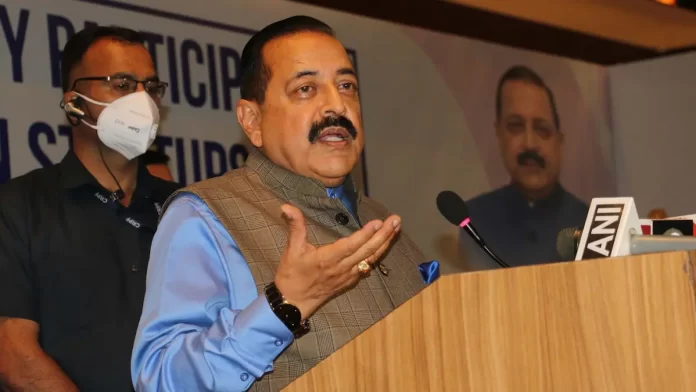Union Minister Dr. Jitendra Singh on Saturday said that Civil servants following the path of Dharma and supporting it with good Karma will lead to administrative excellence adding that an ideal public administration must be competitive, efficient, cost-effective, and accountable to deliver good governance.
He made these remarks while addressing an event on “Revisiting the History of Civil Service Reforms from Capacity Building Lens”.
The event was organized by the Capacity Building Commission to understand the historical perspectives of public administration in India and key recommendations from earlier Administrative Reforms Commissions.
Capacity building of Civil Servants
The Union Minister said that public officials, today are facing increasing pressure to deliver better services with fewer resources which require, among other things, an investment in capacity building.
He maintained that the Civil Servants for a New India need to keep pace with these constant and evolving changes.
Underlined New Generation Reforms for New Generation Civil Servants, Dr. Singh said that India must follow global benchmarks in Governance as it is poised to assume a global leadership role in the Comity of Nations.
He said, increasing Transparency, Accountability, and People-Centric Delivery mechanisms must become cornerstones of New Generation Reforms for the New Generation of Civil Servants.
Annual Health of Civil Services Report
Dr. Singh said that the Capacity Building Commission of India will be publishing an “Annual Health of Civil Services Report” (AHCSR) in 2022 that will take a deeper look at the performance of the Indian civil service and how Mission Karmayogi is impacting capacity building in the civil service.
He opined that the concept of ‘Good governance’ is not alien to India and is well captured even in the country’s ancient literature.
It has been seen as a comprehensive pathway to achieving the ideal state of serving people and overcoming the crisis and challenges in administration.
Dharma and Good Governance
Talking about the close connection between good governance and Dharma, the Union Minister said that in our ancient literature, the foundation of good governance is based on Dharma (righteousness).
One who practices ‘Dharma’ immediately distinguishes oneself from the present materialistic repository of values.
For a Civil servant following the path of Dharma and supporting it with good Karma will lead to administrative excellence.
The earliest works on Public administration in India have been illustrated in various sacred texts such as Vedas, Buddhist literature, and Jain canonical works.
Ancient Indian Political Philosophies
The Union Minister said that a thorough study of Ancient Indian works presents to us stellar examples of political philosophies.
“The science of statecraft in India is well-rooted in our history and has been lived in and evolved upon. We have so much learning to build upon that we don’t have to look towards the West at least for our political philosophy” said Dr. Singh.
Dr. Jitendra Singh stated that present governments can use the learning of traditional, historical knowledge and recent administrative reform attempts to further improve governance and achieve the goal of Maximum Governance, minimum government.
Mission Karmayogi
The Minister expressed hope that Mission Karmayogi will be a key enabler in continuously augmenting and enhancing delivery, and over time will be able to support in achieving the goal of a $5 Trillion economy set by the Prime Minister.
He said the foundations of this Mission are rooted in the recognition that a citizen-centric civil service empowered with role-right attitude, functional expertise, and domain knowledge will result in improved ease of living and ease of doing business.
He said, in the background of ever-changing demographics, digital penetration as well as growing social and political awareness, there is a need to empower the civil servants to be more dynamic and professional.
